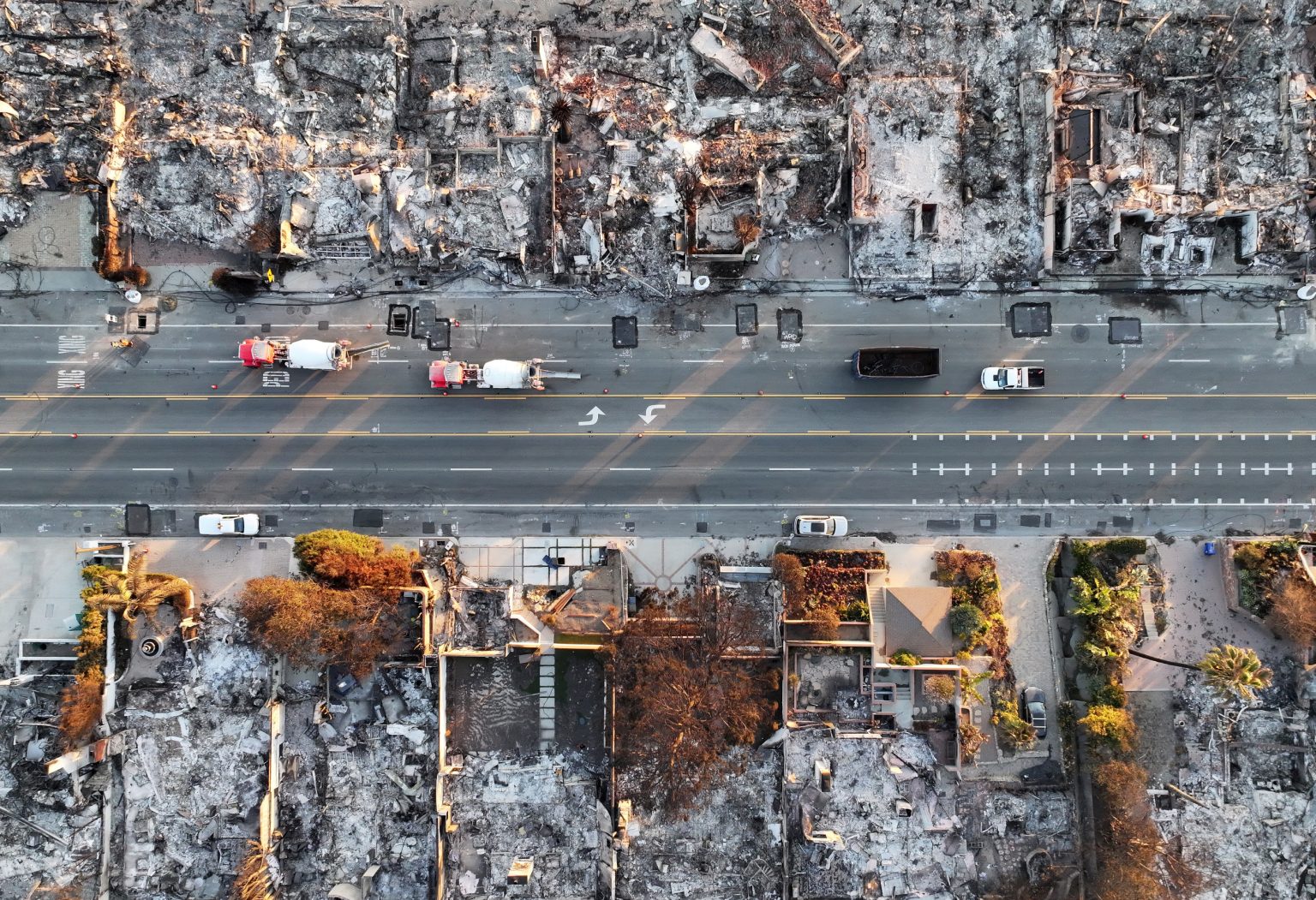The devastating wildfires that ravaged Los Angeles in late 2023 have ignited a housing crisis, exacerbating the already strained market in the region. Tens of thousands of residents, displaced by the destruction, are now desperately searching for new homes, driving up demand and creating fertile ground for price gouging. Redfin reported a staggering 186% surge in online searches for rental properties in the Los Angeles area in the immediate aftermath of the fires, a stark indicator of the immense need for housing. This surge in demand, coupled with a pre-existing housing shortage in California, has created a volatile situation where vulnerable residents face exorbitant rental prices and the threat of homelessness.
The fires, which consumed nearly 40,000 acres and claimed at least 25 lives, have left a scar on the Southern California landscape, obliterating entire neighborhoods and displacing over 100,000 people. Many have lost everything, forced to seek temporary shelter while grappling with the daunting task of finding new homes in a market already plagued by limited inventory and high costs. The sudden influx of displaced residents has further intensified competition for available properties, creating a breeding ground for unscrupulous landlords and property managers looking to exploit the crisis for financial gain. Reports of price gouging have already surfaced, with some landlords doubling rents, taking advantage of the desperation of those who have lost their homes.
California officials have moved swiftly to address the escalating housing crisis and protect residents from predatory practices. Attorney General Rob Bonta issued stern warnings against price gouging, emphasizing that such exploitation would not be tolerated. California law restricts price increases during a state of emergency to 10% above the pre-emergency price for advertised units and sets a cap of 160% of the fair market rent for previously unadvertised units. Bonta urged victims of price gouging to report incidents to authorities, promising swift action against those found to be violating the law. Governor Gavin Newsom further reinforced these protections by extending anti-price gouging laws through January 2026.
The housing crisis unfolding in Los Angeles is not merely a matter of economics; it’s a humanitarian crisis. Families already reeling from the trauma of losing their homes and possessions now face the added burden of exorbitant rental costs, exacerbating their emotional and financial distress. Stories of families forced to turn away from drastically inflated rents highlight the human toll of this crisis. One prospective renter recounted being quoted $28,000 per month for a five-bedroom home, double the previous year’s asking price. While he ultimately refused the offer, the fact that the property had already received multiple bids underscored the desperation of those affected by the fires.
The long-term consequences of the fires extend far beyond the immediate devastation. The destruction of thousands of homes further constricts an already tight housing market, pushing prices upward and potentially displacing even more residents. The estimated insured losses from the fires are expected to be among the highest in U.S. history, with AccuWeather projecting damages and economic losses between $250 billion and $275 billion. This catastrophic event serves as a stark reminder of the vulnerability of communities in the face of natural disasters, particularly in areas already grappling with housing affordability challenges.
The wildfires in Los Angeles have exposed the fragility of the region’s housing market and the vulnerability of its residents. The crisis demands a multifaceted response, including robust enforcement of anti-price gouging laws, immediate assistance for displaced families, and long-term strategies to address the underlying housing shortage. The road to recovery will be long and challenging, requiring collaboration between government agencies, community organizations, and the private sector to ensure that all residents have access to safe and affordable housing. The fires have served as a wake-up call, highlighting the urgent need for comprehensive and sustainable solutions to the housing crisis in Los Angeles and beyond.

